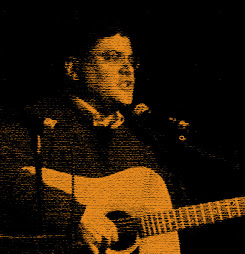I receive a weekly newsletter from American Public Media called, "The Writer's Almanac." Garrison Keillor, of "Prairie Home Companion" fame, edits selections of poetry, as well as stories about authors and poets. Last night, just a few hours of the closing "Ne'ilah" service of Yom Kippur, I read the following poem, by Leonard Nathan. It called to mind a famous Hasidic story, which I've transcribed below. I think both the poem and the story have something to say about the state of our relationship with Jewish tradition. Read them. Let me know what you think. In your estimation, how do the poem and the story relate to our current situation? Does one of them more closely describe where we are today?
Truth
by Leonard Nathan, z”l
As children in the schoolroom game
whisper from one end of the class to the other
and garble the message they pass on or change it
beyond recognition, so we
pass on the truth of our kind.
My father heard it from his, something
vaguely involving God, and his father
heard it from his, and so on back
to Abraham, and so father
passed it on to me, but God had dropped out.
And so my son heard it, a wisdom
found inside a Chinese fortune cookie:
"Be good and hope," which he will pass on
to his son, but maybe with good
missing or hope, maybe with love added.
Though love was never meant to mean so much.
"Truth" by Leonard Nathan from The Potato Eaters. © Orchises Press, 1999.
When the founder of Hasidic Judaism, the great Rabbi Israel Shem Tov, saw misfortune threatening the Jews, it was his custom to go into a certain part of the forest to meditate. There he would light a fire, say a special prayer, and the miracle would be accomplished and the misfortune averted. Later, when his disciple, the celebrated Maggid of Mezritch, had occasion for the same reason to intercede with heaven, he would go to the same place in the forest and say, "Master of the Universe, listen! I do not know how to light the fire, but I am still able to say the prayer." Again the miracle would be accomplished.
Still later, Rabbi Moshe-leib of Sasov, in order to save his people once more, would go into the forest and say, "I do not know how to light the fire. I do not know the prayer, but I know the place and this must be sufficient." It was sufficient, and the miracle was accomplished.
Then it fell to Rabbi Israel of Rizhin to overcome misfortune. Sitting in his armchair, his head in his hands, he spoke to God, "I am unable to light the fire and I do not know the prayer and I cannot even find the place in the forest. All I can do is to tell the story, and this must be sufficient."
And it was sufficient. For God made man because He loves stories.
From Martin Buber, Tales of the Hasidim
Friday, October 10, 2008
Subscribe to:
Comments (Atom)

